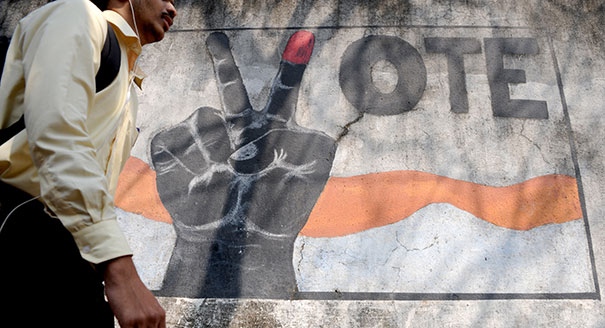Registration
You will receive an email confirming your registration.
This May, the Bharatiya Janata Party (BJP) government of Indian Prime Minister Narendra Modi marked important milestones. First, the Modi government completed the fourth year of its five-year term in office. And second, the BJP attempted to wrest control of the critical southern state of Karnataka from its arch-rival Indian National Congress Party.
Taken together, these two political events herald the unofficial start of the campaign leading into India’s 2019 general election. What is the Modi government’s record thus far, and what impact will its performance have on national political dynamics? Three leading experts of India’s economy, foreign policy, and domestic politics—James Crabtree, Sadanand Dhume, and Tanvi Madan—examined these questions. Carnegie’s Milan Vaishnav moderated the discussion.
James Crabtree
James Crabtree is an associate professor in practice at the Lee Kuan Yew School of Public Policy and was previously the Mumbai bureau chief at the Financial Times. His first book, The Billionaire Raj: A Journey Through India's New Gilded Age, will be published in July.
Sadanand Dhume
Sadanand Dhume is a resident fellow at the American Enterprise Institute and a South Asia columnist for the Wall Street Journal.
Tanvi Madan
Tanvi Madan is a fellow in the Project on International Order and Strategy in the Foreign Policy Program and director of The India Project at the Brookings Institution.
Milan Vaishnav
Milan Vaishnav is a senior fellow and director of the South Asia Program at the Carnegie Endowment for International Peace, where he leads Carnegie’s India Elects 2019 initiative.
In the months ahead, Carnegie scholars will analyze various dimensions of India’s upcoming election battle—including coalition dynamics, the shifting demographic trends in the country’s electorate, and the impact of elections on India’s foreign policy. Keep up to date at CarnegieEndowment.org/IndiaElects2019.
